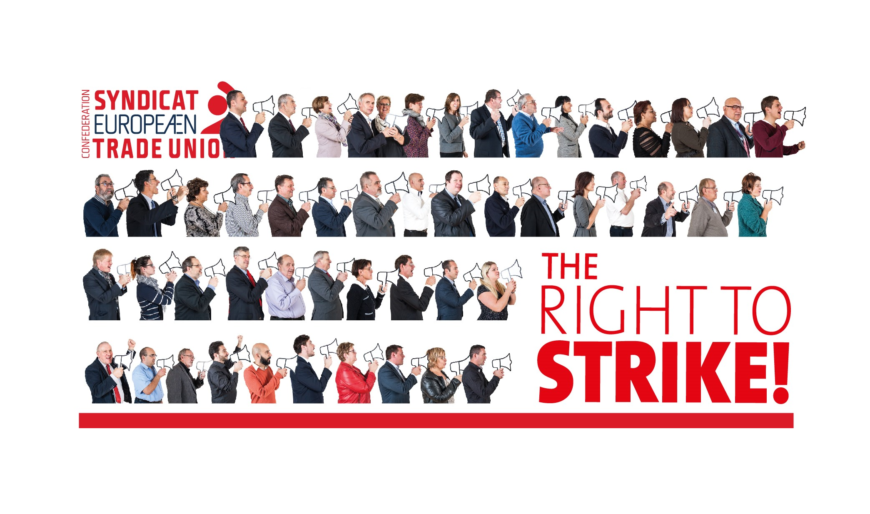The right to strike is under threat in Europe, too.
The right to strike is at risk in a new EU proposal - a Regulation for a Single Market Emergency Instrument.

The right to strike could be undermined by new EU legislation meant to ensure the single market can withstand crises like the Covid pandemic, a legal analysis by the ETUC has found.
The European Commission is set to adopt its proposal for a Regulation for a Single Market Emergency Instrument (SMEI) on Tuesday, which would put in place contingency measures to guarantee free movement as well as the availability of essential goods and services during any future crisis.
However, as part of the reform, the Commission plans to repeal an existing regulation* on the functioning of the single market which explicitly safeguards the right to strike. No such safeguard has been included in the Commission’s draft proposal on SMEI.
Trade unions are concerned that would mean a strike could be considered a “crisis” and that measures triggered by the SMEI could undermine collective action in violation of the international rights such as the EU’s own Charter of Fundamental Rights.
The ETUC has now written to the European Commission calling on them to ensure the right to strike is protected in the new legislation.
ETUC Confederal Secretary Isabelle Schömann said:
“The Covid-19 pandemic and war in Ukraine have demonstrated the importance of union driven collective agreements to provide for a resilient economy mindful for workers’ and citizens’ needs during such crises.
“The right to strike is indissociable from workers’ right to collective bargaining and as such cannot be restricted by contingency measures. Crisis preparedness and response must never be used as means to undermine or set aside fundamental rights.
“Respect for labour rights is fundamental to the EU social market economy and can never be treated as an obstacle to the functioning of the Single Market.
“That’s why the ETUC is calling on the Commission to strengthen the safeguards for fundamental rights in this legislation, in particular when it comes social, workers’ and trade union rights.”
*Article 2 of the ‘Strawberry Regulation’ 2679/98 on the functioning of the internal market states:
“This Regulation may not be interpreted as affecting in any way the exercise of fundamental rights as recognised in Member States, including the right or freedom to strike. These rights may also include the right or freedom to take other actions covered by the specific industrial relations systems in Member States.”
The full letter from the ETUC to the European Commission can be found here.




